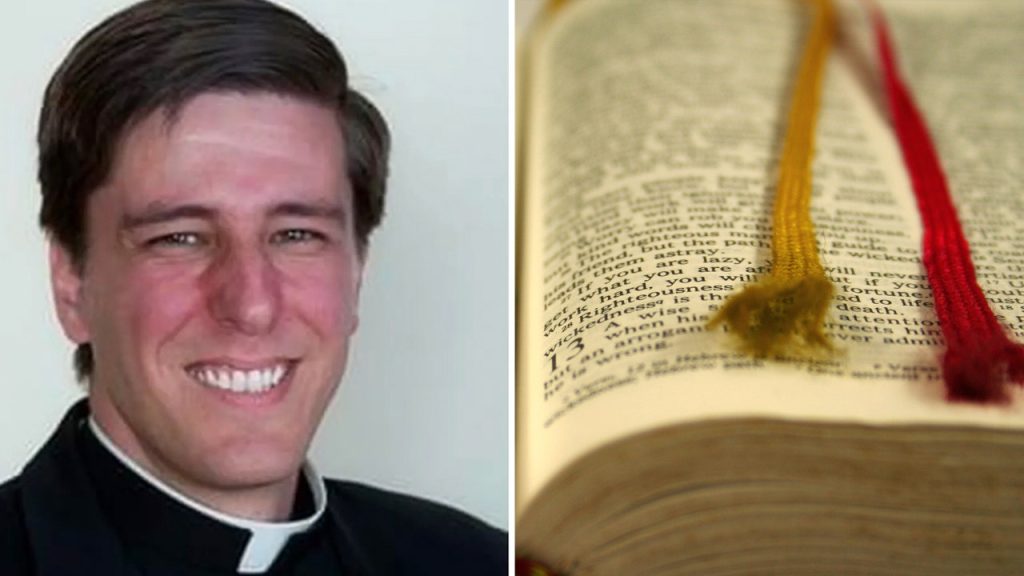In Deuteronomy 4:6 and Mark 7:5-8, the application of God’s law is addressed. The verses seem contradictory, as Moses instructs the Israelites to carefully observe God’s laws for wisdom, while Jesus rebukes the Pharisees for prioritizing human traditions over the cleanliness of their hearts. The real issue, as explained by Fr. David Paternostro, is that the Pharisees focused on too few rules and neglected the cleanliness of their hearts, unlike the Israelites who were promised wisdom through following God’s law. This contradiction can be resolved by understanding the importance of caring for the whole self, including one’s internal reality.
Paternostro emphasizes that wisdom comes from seeing the big picture and understanding how everything fits into that picture. The Pharisees lacked true wisdom because they did not have a comprehensive view of God’s commandments and focused only on external rules. Christians today are urged to avoid repeating the Pharisees’ error by caring for their hearts and internal reality as much as they do for external aspects. By considering how God has cared for the whole self through sacraments and provision, individuals can cultivate a broader love and care for themselves that aligns with God’s expansive love.
The connection between observing God’s commandments and being truly wise lies in caring for the whole self, both externally and internally. Paternostro encourages individuals to reflect on how God’s care encompasses every aspect of their being, inspiring them to love and care for themselves expansively. The more one’s love and care mirrors God’s, the better equipped they are to observe the entirety of God’s commandments and attain true wisdom. This message echoes the need to prioritize internal reality alongside external appearances, as highlighted in Jesus’ rebuke of the Pharisees for neglecting the cleanliness of their hearts.
By focusing on the cleanliness of their hearts in addition to external rituals, individuals can align themselves with God’s care for every part of their being. This holistic approach not only leads to a deeper understanding of God’s commandments but also fosters true wisdom that comes from caring for the whole self. The Pharisees’ error serves as a cautionary tale for Christians today, reminding them to prioritize interior realities and cultivating a comprehensive love and care for themselves that mirrors God’s own expansive love. Through reflection on God’s provision and sacraments, individuals can develop a deeper appreciation for the interconnectedness of their physical and spiritual well-being.
To embody true wisdom and discernment, Christians must embrace a holistic approach to caring for themselves and observing God’s commandments. This involves prioritizing internal realities over external appearances and cultivating a love and care for the whole self that reflects God’s own expansive love. By considering how God’s care encompasses every aspect of their being, individuals can develop a more profound understanding of God’s commandments and attain true wisdom that comes from aligning their love and care with God’s. The example of the Pharisees serves as a reminder of the importance of internal cleanliness and the interconnectedness of physical and spiritual well-being in following God’s law.


